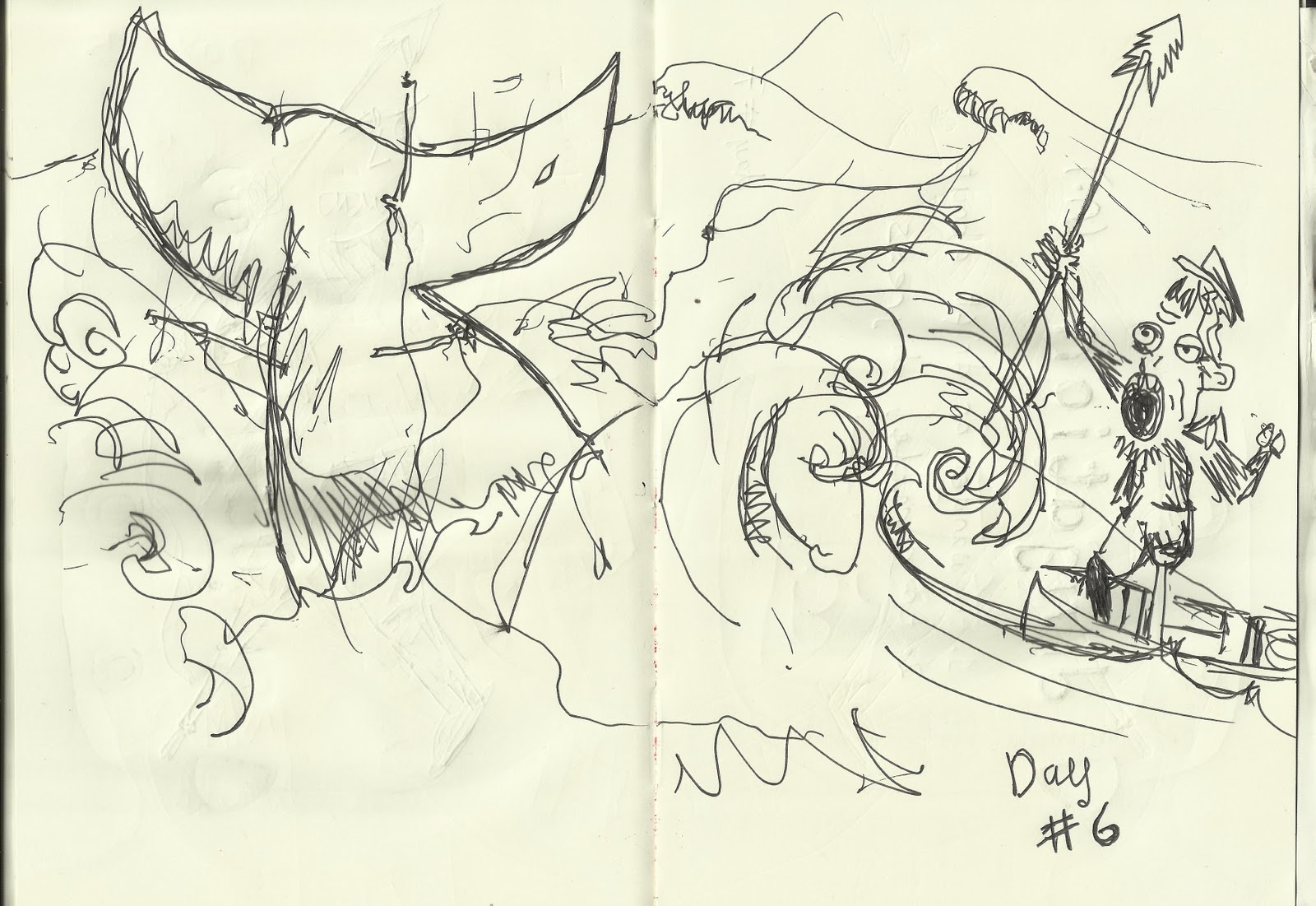In Chapter and 70 of Moby Dick, Captain Ahab delivers a hauntingly dark soliloquy to the severed head of one of the whales that had been caught and “cut into.” Ahab beseeches the “secrets of the whale” from lump of a head hanging over the side of the deck. Melville writes, “‘Speak, thou vast and venerable head,’ muttered Ahab, ‘which, though ungarnished with a beard, yet here and there lookest hoary with mosses; speak, mighty head, and tell us the secret thing that is in thee'” (249) Melville seems to be sending a direct nod to the Shakespeare’s “Hamlet,” but instead of implying a communicative relationship between Ahab and the whale–which stands in as a synechdochical representation of whales–Ahab’s character works to distinguish the whale as an ethereal creature that bridges a gap between human knowledge and an implied “natural” knowledge. This concept is established when Ahab says, “Thou hast been where bell or diver never went; hast slept by many a sailor’s side, where sleepless mothers would give their lives to lay them down.” Although man and the whale have coexisted, there is an implied depth to the knowledge of the whale that is unattainable to the human.
This soliloquy echoes many other sections of this work, especially the penultimate paragraph of Chapter 69 when Ishmael narrates, “Oh, man! admire and model thyself after the whale! Do thou, too, remain warm among ice. Do thou, too, live in this world without being of it…” (247). These sections reflect the complexity of the pursuit of the whale by symbolizing the whale as a divine being that is at once physically valuable, but also an emblem of a perfected morality of being. The irony that this divine being is the object of pursuit for the whalers transforms the narrative into a paradoxical allegory of human understanding and nature.


